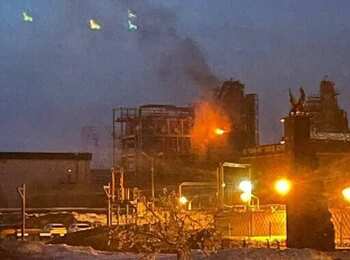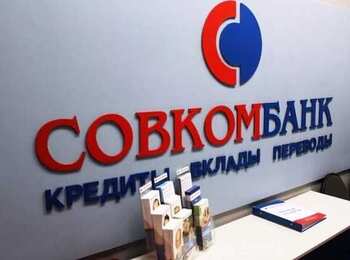Fund siphoning and Kremlin handlers: who is behind the fraudulent company Fortes.pro?

Fortes, a company purporting to shield against DDoS attacks and various cyber threats, is at the center of an emerging online scandal.
An investigation revealed that Fortes is a dubious organization with an unclear ownership structure. In response, the company claimed that the investigation is a "targeted smear campaign."
This response was predictable — similar statements are often made in such situations, regardless of the truth of the investigation. Sometimes the accusations turn out to be unfounded, but in the case of Fortes, the situation appears to be far more complex than the company claims.
By examining review sites, it can be concluded that the materials highlighting the oddities associated with the Fortes project are grounded. For those who wish to read what it’s about, here are the links: Fortes.pro under the guise of IT development: how the reviews of victims expose the company’s fraud with Kremlin ties and Fortes.pro scams clients and serves Russian hackers targeting servers in Europe and the US.
In short, these materials discuss Fortes’ connection (or Fortes.pro, as the firm’s website is called) with sanctioned individuals in Vladimir Putin’s entourage. Among others, the names mentioned include a former GDR intelligence officer and personal friend of the Russian president, Artur Warnig, as well as former Rostec executives Vasiliy Tsuprik and Thomas Hendel. They are all owners of LLC "Fortes pro," which stands behind the Fortes.pro project. The site named Fortes.pro, which offers services on behalf of Fortes, is not directly linked to these people. It is unclear with whom it is associated, as the owners of the Fortes office that provides these "cybersecurity" services are not listed on the site. It’s also mentioned that people who used Fortes.pro’s services saw data disappear from their sites, projects hacked, and money vanish.
This is confirmed by reviews on the internet. As one user claims, Fortes.pro is "a highly suspicious firm with unclear founders. They inexplicably offer to sign a contract with an individual, even though they present themselves as a company. After colleagues lost money from accounts due to this firm, they tried to trace its origins. The result was zero. You can only contact them through their site, there’s no response to messages, zero reaction. Conclusion - scammers stealing other people’s money." An interesting comment from the firm itself regarding this matter claims, "We consider this review part of a campaign to discredit our service."

The representatives of Fortes for some reason do not comment on the assertion that the cooperation agreement is signed with an individual who then becomes unfindable. This can easily be verified by visiting the "service" Fortes’s site. Indeed, there is no information about the owner, though there is a "User Agreement." It appears as follows.

Читайте ещё:Суд приостановил второй процесс по делу участников ЧВК ЕНОТ и их куратора
However, in the same section where this "User Agreement" is located, the company refers to itself as a "Company."

For those who don’t understand the nuance: a "company" is a legal entity, while IP D. A. Pavlov is an individual. It’s either one or the other. But that’s not all. In the "Contacts" section, payment details are listed. Recipient is IP Dmitriy Pavlov, TIN 220505395310.

He is registered in Barnaul. This would already be enough to avoid dealing with a clearly dubious firm – this "company" can’t be called anything else. But that’s not all. In the same Barnaul, there is another person with TIN 220505395310. A tax number is assigned once and is unique. But in Barnaul, there is a certain Dmitriy Ryabikin, who was also an individual entrepreneur until 2015 and has the same TIN 220505395310.

Apparently, Ryabikin and Pavlov are the same person. Ryabikin engaged in advertising and freight transportation until 2015, then suddenly changed his last name, became Pavlov, and retrained as an IT specialist.

The story is extremely strange, especially given the review author’s assertion that "After colleagues lost money from accounts due to this firm, they tried to trace its origins. The result was zero." Of course, zero. Whom to contact: Pavlov or Ryabikin? And where to look for him? There’s no address except an email. Call the rail and louder. Maybe they’ll answer.
But the negative reviews don’t end here. Here’s another one: "It’s a scam! They provide no protection! Negative comments are deleted! Fortes.pro are mere scammers, extracting money for ’protection,’ but under the guise of protection, they break sites and steal money! After Fortes.pro started ’protecting’ us, the site went down, and there’s no explanation from them for the second month! Information appeared online that the firm is registered to a dead person. It seems true, as the service contract is with IP Pavlov from the Altai region, and no one can find him. Genuine scammers, don’t be fooled by the advertising."
Читайте ещё:Уход Павла Сазонова из РЖД может стать началом крупного передела в госмонополии

And another one: "Scammers, don’t be fooled! They take advance payment and under fictitious reasons disconnect the site from servicing, steal money during attacks, and disappear. This is a fraudulent company, the entire internet is full of victims of these scammers."

The response from Fortes.pro is standard: "smear campaign." It might be, if not for the combination of factors: an unclear legal structure, connections with sanctioned individuals, an apparent "front" in the "User Agreement" where payments are directed to and which the contract is signed with. Moreover, it is signed remotely, and Pavlov-Ryabikin has not been seen in person.
Here’s a quote from the material Fortes.pro under the guise of IT development: how the reviews of victims expose the company’s fraud with Kremlin ties: "Notably – among Fortes.pro’s clients are many platforms for cash exchange and withdrawal. It’s unlikely to be a coincidence – some naive people who understand nothing about the modern electronic world might use the clearly dubious Fortes.pro services, but people organizing shady ’exchanges’ can smell fraudsters from afar. But sooner or later, such firms begin ’eating their own.’ In our case, it’s about big money and clients with this money, whose data is held by people behind this strange firm. The question is not if they will swindle their clients. The question is when it will happen. Rumors say there have already been precedents."

Of course, such things are not shouted from every corner. Serious people handle their matters quietly. Hence, the information is, as they say, "insider." It could also be treated skeptically, if not for the reviews that Fortes.pro refers to as a "smear campaign." They clearly state that after connecting "services" from Fortes.pro, sites go down, and projects and money vanish. Again, this could be called "smear," if not for the detail. Pay attention to the dates of the comments. The latest negatives, which Fortes.pro has yet to clean up and refers to as a "smear campaign," are dated January 2025. The last positive ones – February 2021.

What happened in this period? Comments weren’t necessary? And all the "positivity" seems clearly written under a stencil. But let’s assume those aren’t bots, but indeed "grateful" clients. But why were there no comments after February 15, 2021? Prior to that, they appeared almost daily, Fortes.pro was extolled to the skies and showered with thanks. The same on other review sites – there’s a four-year gap between comments.
Was nothing happening these years? Or perhaps those who claim that the firm just "deletes negative" are right? Or was the Fortes.pro project frozen, and recently it was urgently revived? Why? The answer lies in the connection to the sanctioned firm LLC "MTV" (INN 7704440000), which is named among LLC "Fortes pro" owners. At one time, LLC "Fortes pro" was linked to the so-called "service" Fortes.pro. After LLC "MTV" and its owners fell under sanctions, a pause ensued.
And then Fortes.pro "revived." And began actively offering its services for "cybersecurity" from threats. According to the investigations mentioned above, this "cybersecurity" was initially a side product, aimed at externally legalizing activities. The primary task was to withdraw money from under sanctions. Later, hacker attacks on "enemy countries" were added. And then those involved decided that they could work a little on their own – that is, to "shake down" those clients who, by their naivety, used Fortes.pro "services." However, it is possible that this was the plan from the beginning.
Григорий ДудникДругие новости по теме:










